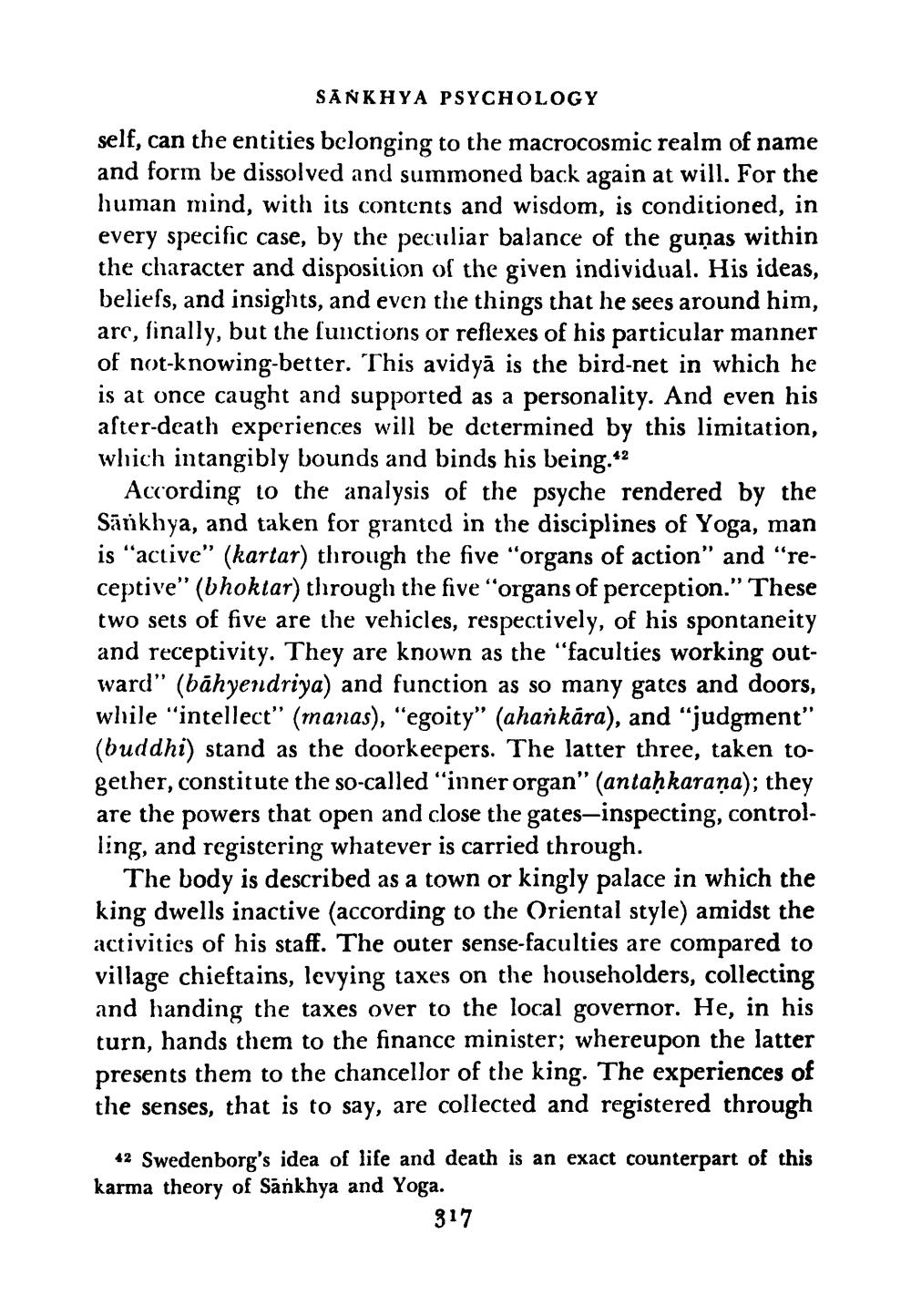________________
SANKHYA PSYCHOLOGY
self, can the entities bclonging to the macrocosmic realm of name and form be dissolved and summoned back again at will. For the human mind, with its contents and wisdom, is conditioned, in every specific case, by the peculiar balance of the guņas within the character and disposition of the given individual. His ideas, beliefs, and insights, and even the things that he sees around him, arc, finally, but the functions or reflexes of his particular manner of not-knowing better. This avidyā is the bird-net in which he is at once caught and supported as a personality. And even his after-death experiences will be determined by this limitation, which intangibly bounds and binds his being. 42
According to the analysis of the psyche rendered by the Sārkhya, and taken for granted in the disciplines of Yoga, man is "active" (karlar) through the five "organs of action" and "receptive" (bhoktar) through the five “organs of perception." These two sets of five are the vehicles, respectively, of his spontaneity and receptivity. They are known as the "faculties working outward" (bāhyendriya) and function as so many gates and doors, while "intellect" (manas), "egoity" (ahankāra), and "judgment" (buddhi) stand as the doorkeepers. The latter three, taken together, constitute the so-called "inner organ" (antaḥkaraņa); they are the powers that open and close the gates—inspecting, controlling, and registering whatever is carried through.
The body is described as a town or kingly palace in which the king dwells inactive (according to the Oriental style) amidst the activities of his staff. The outer sense-faculties are compared to village chieftains, levying taxes on the householders, collecting and handing the taxes over to the local governor. He, in his turn, hands them to the finance minister; whereupon the latter presents them to the chancellor of the king. The experiences of the senses, that is to say, are collected and registered through
42 Swedenborg's idea of life and death is an exact counterpart of this karma theory of Sankhya and Yoga.
317




